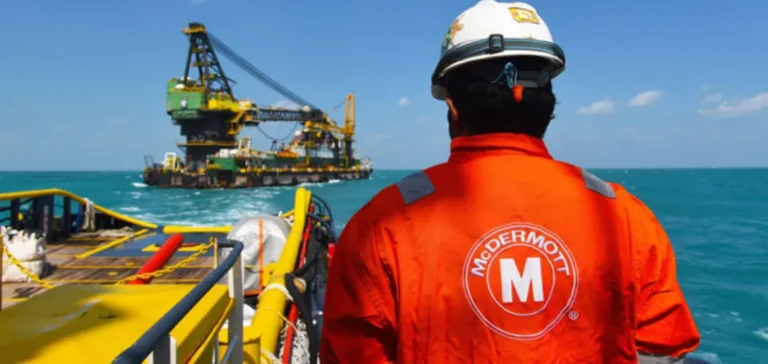McDermott International has been awarded an offshore contract estimated between $1 million and $50 million by the Brazilian company BRAVA Energia. The contract concerns the provision of installation and transportation services for subsea equipment in the offshore Papa-Terra and Atlanta oil fields in Brazil.
Details of the planned work
Under this contract, McDermott will be responsible for the transportation and installation of flexible pipelines, umbilicals, and other associated subsea equipment. These installations will involve two new wells at the Papa-Terra field, located in the Campos Basin, and two additional wells at the Atlanta Phase 2 development project, located in Block BS-4 of the Santos Basin. The contract also includes preliminary commissioning operations as well as onshore logistics support.
These installations aim to strengthen BRAVA Energia’s production capacity while extending the life of the deepwater infrastructure at these two key oil fields. BRAVA Energia’s goal is to increase long-term oil production in these offshore areas.
Recognized expertise in deepwater
Mahesh Swaminathan, Senior Vice President of McDermott’s Subsea and Floating Facilities division, highlighted the strategic importance of this contract. He stated that the award “highlights the essential role of subsea infrastructure in ensuring sustainable production and maintaining asset value in deepwater developments.”
McDermott’s selection is partly due to its proven experience in installing complex platforms and subsea infrastructure in the region. The company had previously delivered the Papa-Terra Tension Leg Platform (TLP), the first such platform installed in South America, and the first dry-tree floating production system offshore Brazil.
Strategic importance for the South American market
With this new contract, McDermott further strengthens its position in the dynamic South American offshore sector. Deepwater developments and brownfield projects, which relate to fields that are already in operation, are a significant part of the regional strategy for major energy companies operating in Brazil.
Installation operations are expected to begin soon, although no specific date has been announced by either company at this time. This project also reflects a regional trend marked by increasing investments in deepwater offshore infrastructure.






















